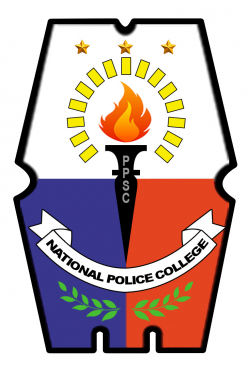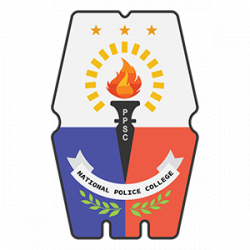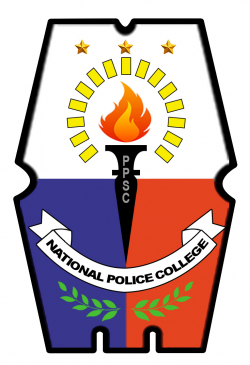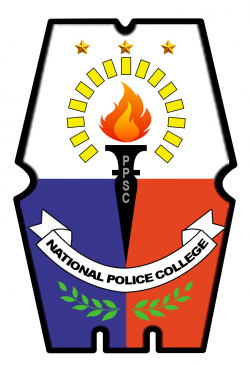THE MULTI-TRUNK RADIO SYSTEM OPERATION IN POLICE REGIONAL OFFICE 6: A PLATFORM FOR COMMUNICATIONS CONVERGENCE

Type
Thesis
Authors
Category
PSOSEC
[ Browse Items ]
Publication Year
2013
Abstract
Crime happens in many forms which is committed by people of all origins and background and has tremendous effect on society and the people within it as a whole. Thus, crime has to be kept under control by the process of law and law enforcement.
New technologies in the field of information and communication technology aid law enforcers to become effective and efficient in law enforcement. However, the same technologies are being used by criminal elements to perpetuate their nefarious activities. Therefore law enforcement agencies have to be a step ahead in using this technological innovation to their advantage, emphasizing the need to subscribe to appropriate advance technology.
The Multi-Trunk Radio System of PRO 6 provides direct voice communication to all the PNP units deployed on the ground and is the heart of the dispatch system that a commander is able to provide direction and control. The main concerns of the MTRS is equipment obsolescence. When equipment reached its obsolescence stage, manufacture and support ceases and to continue its operation would be very costly. It befalls upon the RCEO 6 to ensure the continued operation of the MTRS, evaluate its operation and to prepare plans for system upgrading. It is in this light that this study is being conducted.
This study aimed to assess the MTRS operation in PRO 6 in order to improve the MTRS operation to adequately provide radio communication services and support to police operations in a public safety environment that is constantly changing and becoming more complex.
This study utilized the descriptive method of research that involved the collection of data in order to answer the questions regarding the MTRS operation as a platform for communication convergence in terms of crime intervention, vip security, relief and rescue operation and counter insurgency operation. There were a total of one hundred sixty five (165) respondents, comprised of eighteen (18) personnel from RCEO 6, seventy (70) radio operators, and seventy-seven (77) field/frontline personnel f PRO6.
The salient findings of the study from the data gathered are the following:
On the assessment of the three groups of respondents on the effectiveness of the MTRS operation, crime intervention variable and relief and rescue operation variable received an adjectival rating of “moderately effective” with an obtained means of 2.97 and 2.86, respectively while variables on vip security and counter insurgency operation garnered a verbal interpretation of “less effective” with obtained means of 2.34 and 2.56, respectively. The grand mean was computed at 2.68 corresponding to a verbal interpretation of “moderately effective”. These findings had truly emphasized the pressing challenge for system enhancement on the MTRS operation.
As to the problem encountered that affect the MTRS operation in PRO6, crime intervention and relief and rescue operation variables received a verbal rating of “moderately serious” with obtained means of 3.38 and 3.25, respectively while vip security variable and counter insurgency variable received a verbal rating of “serious” with an obtained means of 3.84 and 3.74, respectively. The grand mean was computed to be 3.55 corresponding to a verbal interpretation of “serious”. The findings had immensely elaborated the compelling need to address the problems that affect the MTRS operation to adequately support the different police functions.
For the proposed measures, the three groups of respondents had assessed the counter insurgency variable as “highly recommended” with obtained mean of 4.28 while the crime intervention, vip security and relief and rescue operation variable received a verbal rating of “recommended” with obtained means of 4.11, 4.16 and 4.05, respectively. The grand mean on the proposed measures to address problems encountered was computed to be 4.15 equivalent to a verbal interpretation of “recommended”. As a whole, the overall results stressed that these measures should be adopted to enhance MTRS operation.
Based on the findings of the study, the following conclusions are drawn:
The MTRS operation in PRO6 is inadequate in providing the required system functionality such as data services and application (short messaging services, photos, and server based application) and telephone interconnection. Likewise, the MTRS operation should have the capability to provide end to end encryption to safeguard critical information, provide wide area coverage and accessibility to a large number of users. It should also be able to provide communication link to other law enforcement agencies and the AFP in normal and emergency situation requiring constant coordination to be able to respond to the emergency and to manage large scale incidents.
The MTRS operation is the heart of the dispatch system that a commander is able to provide direction and control, hence the need to ensure that the system is operational 24/7. Further, there is a need to develop and enhance the technical skills of personnel to properly operate and maintain radio communication equipment and finally, the need to enhance communication security.
In the light of the findings and conclusions, the following are the recommendations:
Radio communication system modernization and equipage fill-up should be undertaken as a means to institute system upgrading and technological enhancement which can be achieved thru migration from analog to digital system thereby providing radio users with added functionality, increase channel capacity and overall system security. Gradual fill-up of digital radio equipment should be undertaken thru the acquisition of digital base, mobile and handheld radio as a form of system fill-up including Digital Trunk Radio System (DTRS) as DTRS terminal fill-up in parallel with the system fill-up being undertaken. Acquisition of interface/integrator devices should be considered to address problems in interoperability. Enhancement of radio communication readiness should be adopted through operational evaluation, preventive maintenance, repair and restoration and accessory acquisition. In like manner, human resource skills upgrading and communications security enhancement should also be achieved as the MTRS operation being a platform for communication convergence requires the competence of RCEO 6, concerned radio users to properly operate and maintain radio communication equipment. Similar study on other parameters should also be undertaken to further validate the research findings.
New technologies in the field of information and communication technology aid law enforcers to become effective and efficient in law enforcement. However, the same technologies are being used by criminal elements to perpetuate their nefarious activities. Therefore law enforcement agencies have to be a step ahead in using this technological innovation to their advantage, emphasizing the need to subscribe to appropriate advance technology.
The Multi-Trunk Radio System of PRO 6 provides direct voice communication to all the PNP units deployed on the ground and is the heart of the dispatch system that a commander is able to provide direction and control. The main concerns of the MTRS is equipment obsolescence. When equipment reached its obsolescence stage, manufacture and support ceases and to continue its operation would be very costly. It befalls upon the RCEO 6 to ensure the continued operation of the MTRS, evaluate its operation and to prepare plans for system upgrading. It is in this light that this study is being conducted.
This study aimed to assess the MTRS operation in PRO 6 in order to improve the MTRS operation to adequately provide radio communication services and support to police operations in a public safety environment that is constantly changing and becoming more complex.
This study utilized the descriptive method of research that involved the collection of data in order to answer the questions regarding the MTRS operation as a platform for communication convergence in terms of crime intervention, vip security, relief and rescue operation and counter insurgency operation. There were a total of one hundred sixty five (165) respondents, comprised of eighteen (18) personnel from RCEO 6, seventy (70) radio operators, and seventy-seven (77) field/frontline personnel f PRO6.
The salient findings of the study from the data gathered are the following:
On the assessment of the three groups of respondents on the effectiveness of the MTRS operation, crime intervention variable and relief and rescue operation variable received an adjectival rating of “moderately effective” with an obtained means of 2.97 and 2.86, respectively while variables on vip security and counter insurgency operation garnered a verbal interpretation of “less effective” with obtained means of 2.34 and 2.56, respectively. The grand mean was computed at 2.68 corresponding to a verbal interpretation of “moderately effective”. These findings had truly emphasized the pressing challenge for system enhancement on the MTRS operation.
As to the problem encountered that affect the MTRS operation in PRO6, crime intervention and relief and rescue operation variables received a verbal rating of “moderately serious” with obtained means of 3.38 and 3.25, respectively while vip security variable and counter insurgency variable received a verbal rating of “serious” with an obtained means of 3.84 and 3.74, respectively. The grand mean was computed to be 3.55 corresponding to a verbal interpretation of “serious”. The findings had immensely elaborated the compelling need to address the problems that affect the MTRS operation to adequately support the different police functions.
For the proposed measures, the three groups of respondents had assessed the counter insurgency variable as “highly recommended” with obtained mean of 4.28 while the crime intervention, vip security and relief and rescue operation variable received a verbal rating of “recommended” with obtained means of 4.11, 4.16 and 4.05, respectively. The grand mean on the proposed measures to address problems encountered was computed to be 4.15 equivalent to a verbal interpretation of “recommended”. As a whole, the overall results stressed that these measures should be adopted to enhance MTRS operation.
Based on the findings of the study, the following conclusions are drawn:
The MTRS operation in PRO6 is inadequate in providing the required system functionality such as data services and application (short messaging services, photos, and server based application) and telephone interconnection. Likewise, the MTRS operation should have the capability to provide end to end encryption to safeguard critical information, provide wide area coverage and accessibility to a large number of users. It should also be able to provide communication link to other law enforcement agencies and the AFP in normal and emergency situation requiring constant coordination to be able to respond to the emergency and to manage large scale incidents.
The MTRS operation is the heart of the dispatch system that a commander is able to provide direction and control, hence the need to ensure that the system is operational 24/7. Further, there is a need to develop and enhance the technical skills of personnel to properly operate and maintain radio communication equipment and finally, the need to enhance communication security.
In the light of the findings and conclusions, the following are the recommendations:
Radio communication system modernization and equipage fill-up should be undertaken as a means to institute system upgrading and technological enhancement which can be achieved thru migration from analog to digital system thereby providing radio users with added functionality, increase channel capacity and overall system security. Gradual fill-up of digital radio equipment should be undertaken thru the acquisition of digital base, mobile and handheld radio as a form of system fill-up including Digital Trunk Radio System (DTRS) as DTRS terminal fill-up in parallel with the system fill-up being undertaken. Acquisition of interface/integrator devices should be considered to address problems in interoperability. Enhancement of radio communication readiness should be adopted through operational evaluation, preventive maintenance, repair and restoration and accessory acquisition. In like manner, human resource skills upgrading and communications security enhancement should also be achieved as the MTRS operation being a platform for communication convergence requires the competence of RCEO 6, concerned radio users to properly operate and maintain radio communication equipment. Similar study on other parameters should also be undertaken to further validate the research findings.
Number of Copies
1
| Library | Accession No | Call No | Copy No | Edition | Location | Availability |
|---|---|---|---|---|---|---|
| NPC Library | 676142 | 1 | Yes |



